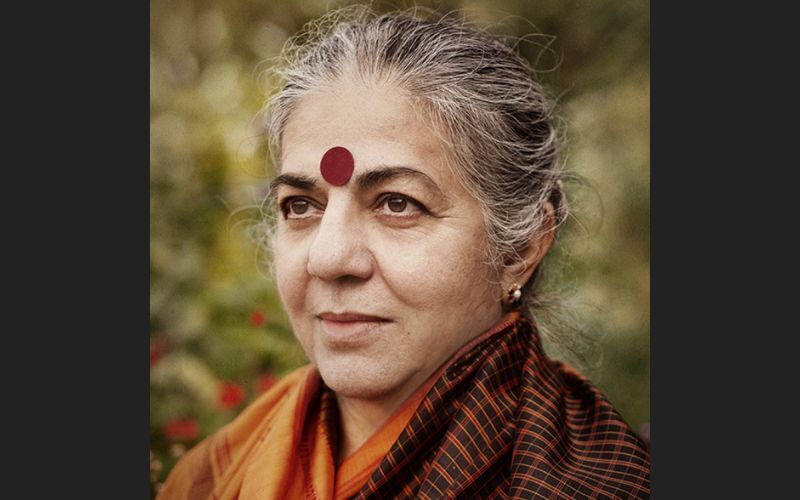Vandana Shiva is an internationally renowned activist for biodiversity and holds a position against corporate globalization. She is the author of several books, including Stolen Harvest: The Hijacking of the Global Food Supply, Earth Democracy: Justice, Sustainability, and Peace, and Soil Not Oil; and Staying Alive. She is a contributing editor to YES! magazine.
Vandana Shiva was born in 1952, in India’s Dehradun Valley, in the Uttarakhand state at the foothills of the Himalayas. She never intended to become an activist, environmental warrior or eco-feminist. Originally her path led to Quantum Physics, which she studied in Canada and where she eventually received her PhD in the subject. However, prior to leaving India to start the program, she went on a trek through the Himalayas. This is where she met the tree huggers of the Chipko movement, in the same forests of Uttarakhand where her father had worked when she was a child. She returned to India to volunteer with he Chipko movement during every vacation and break her studies allowed.
The Chipko movement started in 1973, in Uttarakhand, in efforts to stop rapid/mass deforestation and to change the policies of the Forest Department. Under British colonial rule, laws were introduced - known as the Indian Forest Acts of 1878 and 1927 - to allow the government to manage natural resources. These laws gave the state the right to exclusively control use of certain areas, which had an overwhelmingly negative impact on communities that had traditionally relied on forests for their survival. The goal of the movement was for local communities to take back control of their land and resources. “Chipko” in Hindi means “to embrace” or “to hug,” making the non-violent Chipko protests quite literally a tree hugging movement. Chipko was led primarily by women and inspired so many other women, including Shiva, to join the fight for their environment and natural resources. In 1993, when Vandana Shiva won the Right Livelihood Award Laureate, she cited Chipko as a major inspiration for her work on the conservation of indigenous seeds, saying "Chipko shook our policy-makers out of the slumber that allowed them to think of forests as timber mines, and woke them to the ecological functions of the forests in the catchments of our rivers."
In 2010 Shiva was awarded the Sydney Peace Prize.
Lately, she spends her time traveling the world and joining in conversations wherever she goes. She’s published many books, led many movements, and spoke out against many executives. Regardless of where she goes or what she does, she continues to be a woman on a mission to fight the rise of Big Agriculture, and the end of biodiversity. Her name is on the lips of most anybody engaged in questions of sustainable agriculture, social justice, globalization and any of the great sociocultural fights of the past couple of decades.


